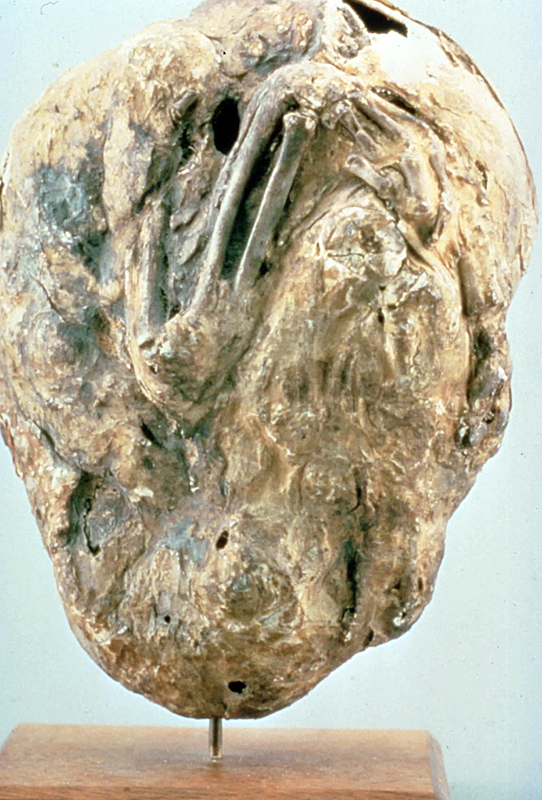A 92-old-woman gave birth to her 60-year-old baby. Huang Yijun, 92, of southern China, was carrying a lithopedion; otherwise known as a stone baby. This poor woman had been informed by doctors that her baby had died in 1948, but she did not have the money to have the dead foetus removed, which just goes to show how important universal health care is.
A lithopedion is a rare condition, which occurs when a foetus dies during pregnancy and then begins to calcify to protect the mother from infection.
The word lithopedion comes from Greek and it literally means, "stone baby".
Although first described by the physician Albucasis in the 10th century, the earliest documented case of a stone baby was discovered when Colombe Chatr, a French woman, was given an autopsy after her death in 1582 and it was found that she had been carrying a fully developed stone baby for 28 years.
Another lithopedion case occurred in San Antonio, Chilie, when a 2 kg (4.4 lb) calcified fetus was discovered in the abdomen of a 90-year-old Chilean woman during an X-ray examination. The classified baby is believed to have been in the woman's abdomen for 50 years and it was so large and developed, it occupied the whole abdominal cavity.
A report about this condition in the year 2000, emphasised that this condition is very rare occurring in less than two percent of all abdominal pregnancies. Of note, abdominal pregnancies only occur in about one in every 11,000 pregnancies.
Read Are Humans Just Infantile?
The word lithopedion comes from Greek and it literally means, "stone baby".
Although first described by the physician Albucasis in the 10th century, the earliest documented case of a stone baby was discovered when Colombe Chatr, a French woman, was given an autopsy after her death in 1582 and it was found that she had been carrying a fully developed stone baby for 28 years.
Another lithopedion case occurred in San Antonio, Chilie, when a 2 kg (4.4 lb) calcified fetus was discovered in the abdomen of a 90-year-old Chilean woman during an X-ray examination. The classified baby is believed to have been in the woman's abdomen for 50 years and it was so large and developed, it occupied the whole abdominal cavity.
A report about this condition in the year 2000, emphasised that this condition is very rare occurring in less than two percent of all abdominal pregnancies. Of note, abdominal pregnancies only occur in about one in every 11,000 pregnancies.
Read Are Humans Just Infantile?
